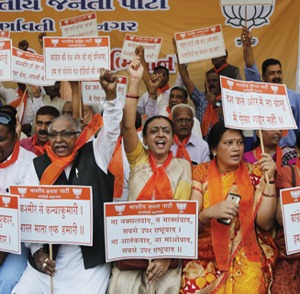One of the big issues that will face the new Parliament after the General Election is the whole area of developments in assisted reproduction and the use of gametes and embryos. The Labour Government has been extremely variable on the subject of reproductive technologies and I have found myself witnessing some very strange role-reversals from the spokespeople of both the other parties. When it came to embryonic stem cell research and cloning, the Government has been correct in policy terms, but very slow off the mark in putting its case in the media. In a very recent Private Member's Bill, the Government appears to have been acting more with the media in mind than with due care and attention to key ethical issues.
At the same time, the Conservatives, who are usually the first to be concerned about what they wrongly consider to be "erosion of family values", have been very blasé about allowing the Government to go ahead with what could be considered to be flawed legislation. The Bill that has provoked the latest debate is the Human Fertilisation (Deceased Fathers) Amendment Bill which seeks to amend the 1990 HFE Act to provide that children who are conceived artificially, after the death of the provider of the sperm, are entitled to have their late father's name on their birth certificate.
The original Act was keen to ensure that no succession or inheritance rights were obtained by posthumously conceived children or children born from embryos implanted posthumously. This was to ensure that estates could be closed even if embryos were frozen for years. It did have the effect of not allowing even symbolic paternity to be acknowledged on a birth certificate. At the time, members of the Warnock Committee, which drafted the basis for the 1990 Act, were keen to discourage posthumous reproduction.
The Diane Blood case, which received a lot of publicity a few years ago, changed attitudes on this issue. She and her husband were trying for children when he was struck down with meningitis and was maintained on a life support machine in a coma. She argued that they had in fact discussed what they would do in these circumstances and that he had agreed that sperm could be removed and used even if he died. The problem was firstly that the HFE Act dictated that written consent was needed for the storage and use of gametes and secondly that removal of sperm without consent from a dying man could constitute assault. In the end, Mrs Blood persuaded doctors to take the sperm, Mr Blood died, the HFEA refused permission for the sperm to be stored and used, but eventually allowed her to export them to Belgium where her son was conceived by intra-cytoplasmic sperm injection (ICSI).
She has been a fantastic campaigner for her right to conceive, and then has campaigned hard using the tabloid newspapers in particular for the right of her son to have his father's name on his birth certificate. As a result of this, the Government drafted a Private Member's Bill which would give this right not only to future cases, but retrospectively back to 1990. I was a co-signatory to the Bill. Unfortunately, the Bill was flawed in my opinion because it did not stipulate a requirement in the future, following the Blood case, for sperm to have been obtained legally.
It seems in the light of the Government's reaction to the organ retention incident at Alder Hay and elsewhere, where informed consent was felt to be vital peculiar that the Government should not be seeking to ensure that the requirements for the use of consent in gametes are reinforced in any future legislation.
In taking this position and seeking to amend the Bill accordingly, I was supported by many of the leading ethicists in the field. The Department of Health were remarkably reluctant to compromise, and because of the strong support of the Telegraph and the Mail for Mrs Blood, the Conservative opposition were singularly unwilling to seek to amend the Bill even to ensure a prospective requirement for consent while allowing Mrs Blood's son to benefit. It was only the cack-handed intervention of a filibustering Tory backbencher that slowed the Bill's progress, leaving it victim to the dissolution of Parliament. The Government needs to bring in a proper Human Fertilisation and Embryology Amendment Bill. If they do not get a move on, they will be run over by the progress of medical science.

